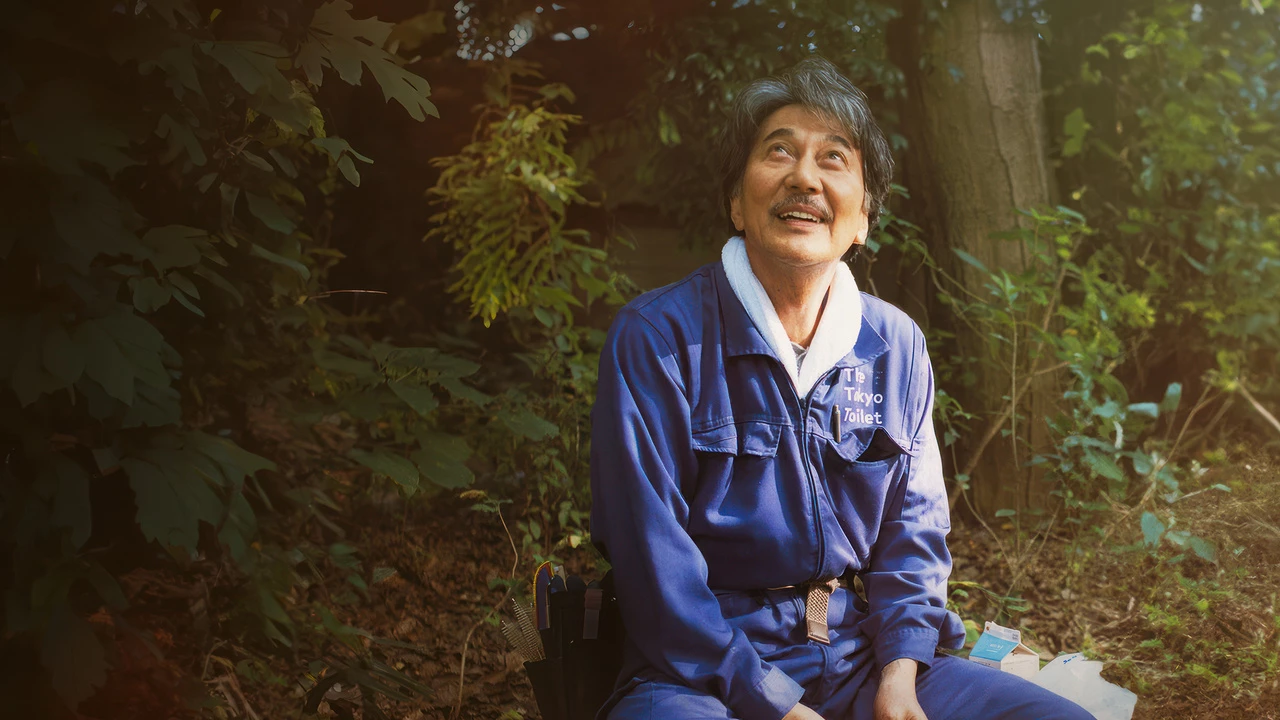
Watching the beautiful, heartwarming film, Perfect Days, made me reflect about how impossible it seems to live a simple life with dignity in the US. Hirayama, the character in the film, cleans public toilets in Tokyo. Every day, he repeats his simple, quiet routines while earning a living diligently scrubbing each outhouse. He basically works alone, reporting to an unseen agency which mostly doesn't interfere with his work. He's able to afford an apartment, hobbies like photography and collecting music, and regularly eating at restaurants. Hirayama can appreciate the mundane beauty of life, because he's not crushed by his material circumstances.
Is that sort of lifestyle possible in America? I have certainly been trying to find a way toward a simple, low-energy, low-complexity life, but I haven't found some stable position that would allow for it. And I think the missing ingredient is dignity. Finding a low wage job that is humane (and basically ethical), is an elusive task.
One of my first jobs was a temporary position in a box factory in my hometown. Although I didn't mind the repetitive work, the class divisions were immediately apparent and obtrusive. My coworkers were all Dominicans, while the managers were white. When I showed up, the managers acted surprised. At the time, I was on a leave of absence from college (I never returned). The managers basically said that factory work was no place for someone like me, and I should go back to college so that I could move up in the factory -- for instance, working in the separate room where a college graduate designed the boxes that the rest of us built. The truth is, I was already smart enough to do that job, but the hierarchical structure of the workplace must be enforced, and those on the bottom must be treated with contempt.
My next job, as a grocery store cashier, was much the same. The managers treated the cashiers poorly, even if the manager had just recently promoted from cashier. When I advocated for my right to take breaks at certain times, management considered me a trouble-maker...
Many years later, after stints in tech and other odd jobs, I worked as a cook at a Buddhist retreat center. At first, I thought it was the perfect sort of job where I could just do the good, necessary work with joy. It paid $15/hr and was part time, but I was happy for it. Unfortunately (and unsurprisingly), the hierarchy reared its ugly head again. My immediate boss treated me like an idiot who had to be micro-managed. He expected me to be constantly busy while I was on the job and would leave notes to tell me exactly what to do. He'd scold me if I didn't do things exactly the way he would've done. Meanwhile, the head of the organization wielded his class entitlement. The management types literally worked in offices on the upper floor, above the peons who did the cleaning and cooking. And they reminded us of the hierarchy, whenever possible. The patrons of the retreat center also instinctively legitimated the hierarchy -- they'd treat the workers like "the help", while palling around with the upper class scholars and office workers.
This is a sick society.
After working as a cook (and basically being fired for rocking the boat), I worked as a programmer in an office on the 7th floor. I had once again ascended the hierarchy, and it was miserable. Despite the problems with the cook job, I tried to bring some of the spirit of it to the programming job -- for instance, when I'm at the office earning an enormous salary, I should not be goofing off; I should find something useful to do. And I tried to instill this ideal with the cowokers/mentees on my team, but they weren't very receptive to it. The general sense I got was that a high salary entitles people to do very little real work, while feeling like they've earned their position on the hierarchy. I would lament (to myself) after attending pointless meetings and calculating that the organization had just evaportated thousands of dollars for our salaries. After a while, my job evolved into mostly reviewing work that a Pakistani team were doing -- work that I could've done, but management wanted to outsource. I wondered if my job was turning into that useless Office Space guy -- "I deliver the specs to the engineers... I have people skills!" When I expressed my discomfort to my boss, she said I was thinking about it wrong; essentially, I should feel entitled by my position. Talking to a coworker and friend about my guilt around earning a lot of money doing very little, he suggested donating to charity. My immediate teammates might've felt similary disempowered, but they kept their heads down and collected the pay checks.
Is that how we're supposed to cope with an insane System? Either you feel like the System is Right and Just, or you graciously give away some of your blood-money to the wretched souls you step over on the way to the office?
My current "livelihood" -- playing music in a band and doing odd-jobs (carpentry, yard work, etc) -- seems to be approaching Hirayama's lifestyle. These jobs offer a degree of autonomy and dignity, even if they don't pay very well. The work can be rewarding, and people appreciate a job well done. But the work barely pays the bills; I'm still drawing down the savings from the unethical job near the top of the pyramid. If I wanted to be financially sustainable like this, I would have to find a lot more odd-jobs per month, which would mean taking on more projects of dubious utility and ethics, while expending much more energy traveling around to distant job sites. Or, I could somehow join enough bands that I could play gigs nearly every night of the week (impossible, in my neck of the woods).
People often remark that "it's expensive to be poor", because the poor become entrapped by predatory financial systems, rental arrangements, and debt, with no hope of treading water. I have been very fortunate to have weaseled my way up the economic hierarchy several times in my life, for brief periods, in order to afford a path away from those predatory systems. I built my house, live off grid, and have no mortage. And yet, I still have mounting expenses -- taxes, food, insurance -- because it is very difficult to completely detatch from this System. Becoming homeless and living even further on the margins of society is an option for reducing expenses, but it also entails a further loss of dignity, since we've been conditioned to treat the homeless like trash. (I hope this will change in the future, when increasing numbers of people become homeless as a result of the collapse of the System)
The "Bread and Roses Strike" in my hometown, Lawrence, agitated for human dignity for mill workers who toiled in textile factories for 60 hour weeks. Managers and police tried crushing the strike. Harvard students received extra credit to travel to Lawrence and beat up poor people. Ultimately, whatever gains the workers achieved were eroded, including the entire industrial capacity of the city, as companies sought cheaper labor.
Today, the idea of finding a stable 40 hour work week which could provide a living wage, is quickly receding from view. The middle class was a brief historical anomaly. Our bosses are pushing us back to Feudalism, except without the dignity of having a plot of land to grow your own vegetables.
Maybe it is possible to live in Japan like Hirayama -- with autonomy, respect, joy, and voluntary austerity. Or maybe it's a complete work of fiction, a hopeful delusion concoted by someone further up the pyramid. I imagine that an American version of the story would feature someone living with three other people in an overpriced apartment in a bad neighborhood, working in the "gig economy", constantly surveilled via phone app, while their wages are increasingly siphoned up to the laptop class. Meanwhile, our protagonist is one medical issue away from bankruptcy and homelessness.
But I could be wrong. I want to find a way of surviving with sufficiency, in community, while engaging as little as possible with this economic system. I hope to collaborate with others who want to escape the trap. May we all be able to earn an ethical livelihood while appreciating the quality of light filtering through leaves.
